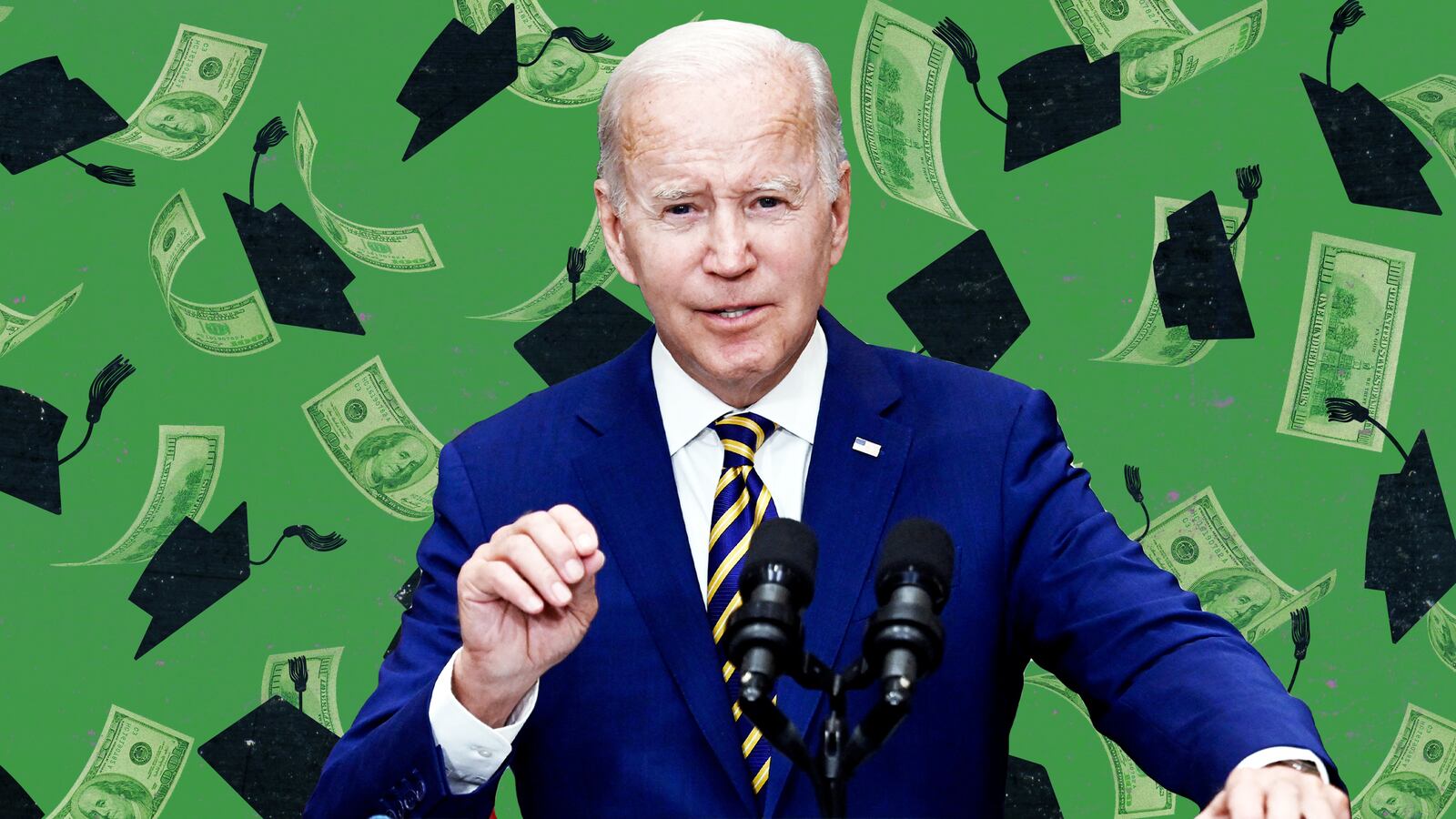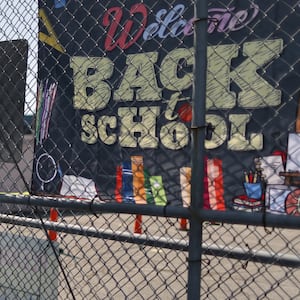After teasing such an announcement for the entirety of his administration, and implementing years of payment freezes, President Joe Biden on Wednesday announced forgiveness of student loans to the tune of $10,000 for millions of borrowers, and $20,000 for Pell Grant recipients.
The message: Never fear, your politicians are doing things, and as such, you should vote for them.
Whether it is the Inflation Reduction Act or the executive pen-and-phone cancellation of student loans, the Biden administration is full of action. And action, in the language of the Beltway and its media, is the stuff of momentum and comebacks! Aviator Joe is back on his game! Dark Brandon is thwarting his adversaries from a Rehoboth Beach bike ride!
But is that true? In the satirical BBC series Dear Prime Minister, the writers expertly skewer the “politician's fallacy,” or as you might know it—the operating philosophy of everyone in Washington.
“Something must be done.”
“This is something.”
“We must do this!’
But do voters operate under the same logical fallacy? Not always, thank goodness.
In fact, “doing something” is but one metric among many that voters consider. When you think about things outside of the rubric of “doing,” the picture becomes much less clear on the conventional wisdom—which holds that all action is good action, and only inaction is bad.
Before we get to student loan forgiveness—whose budgetary largesse is fresh off the ol' mint's presses—let's consider the Inflation Reduction Act, the most recent action about which we have subsequent polling.
The Inflation Reduction Act’s (IRA) ridiculous name was taken at face value by most media coverage during the run-up to the passage of the bill, and it passed in Congress before the Congressional Budget Office even had a chance to give it a score. It boasted a dubious $305 billion in deficit reduction while doubling the size of the IRS over 10 years, offered subsidies for expensive electric cars to people struggling with the highest inflation in 40 years and, according to the Joint Committee on Taxation, raised taxes on many income levels below the promised $400,000 threshold.
After it became law, the Democrats who passed it and the news media who covered it basically conceded it had little to do with inflation reduction, and more to do with remaking the American economy in the style of Biden’s failed Build Back Better plan. The difference between the two being that the IRA was pared back just enough to get past Sen. Joe Manchin.
But despite the “But there’s more!” pitch after the initial rationale for the bill dissolved, the American people still soured on it.
A recent Economist/YouGov poll found that only 13 percent of American voters thought the Inflation Reduction Act would actually decrease inflation, while 42 percent believed it would do the opposite. Transformative and historic ain’t what they used to be.
NBC News asked voters if the Inflation Reduction Act would make a difference in their lives. If you combine those who thought it would make no difference (36 percent) or make them worse off (35 percent), you get a whopping 70+ percent of Americans who think this action from Aviator Joe is not great, compared with 26 percent who say it will make them better off.
Now, let's do student loan forgiveness. What does this action look like?
It looks like a bribe, coming as it does 10 weeks before a midterm election, and aimed as it is at college-educated voters who are the Democratic base. It wipes out every penny (and likely more) of the deficit reduction that the Inflation Reduction Act was supposed to deliver. It benefits a relatively small, affluent group of voters. A minority of Americans have college degrees, they are higher earning and less-often unemployed than their fellow countrymen, and this forgiveness benefit is available for couples making up to $250,000 in annual income.
It takes the willingly acquired debt of some and makes it a liability of those who did not take it on, while offering nothing in mortgage relief, car loan relief, credit-card debt relief, or small-business loan relief. It makes suckers of everyone who recently paid off their college loans or decided not to acquire them in the first place.
In response to a question about this element of unfairness, Biden offered this: "Is it unfair to people who in fact do not own multi-billion dollar businesses? You see how these guys give them all a tax break. Is that fair? What do you think?"
Honestly, I don't know what that means, but there it is if you want his take.
It also does nothing to solve the actual problem of rising education costs (whether discharging student debt in bankruptcy or lowering interest rates or making sure colleges have skin in the game), and quite possibly makes them worse by further subsidizing bloat while shielding colleges from the costs.
It is also legally dubious, but I will grant to you that voters do not care about that part one bit, even if I do.
A recent CNBC poll found 59 percent worry that this particular action will cause more inflation, perhaps because many actions the administration has insisted wouldn't exacerbate inflation—have. A June NPR poll showed majority support (55 percent) for $10,000 in debt relief, but over 80 percent say the "government's priority should be making college more affordable for current and future students" over debt relief.
It's too early to tell whether this action will give the Biden administration the boost anticipated by so much of the Beltway, a disproportionate number of whom happen to be eligible for this benefit. But the recent lessons of the Inflation Reduction Act suggest there's such a thing as doing the wrong things.








